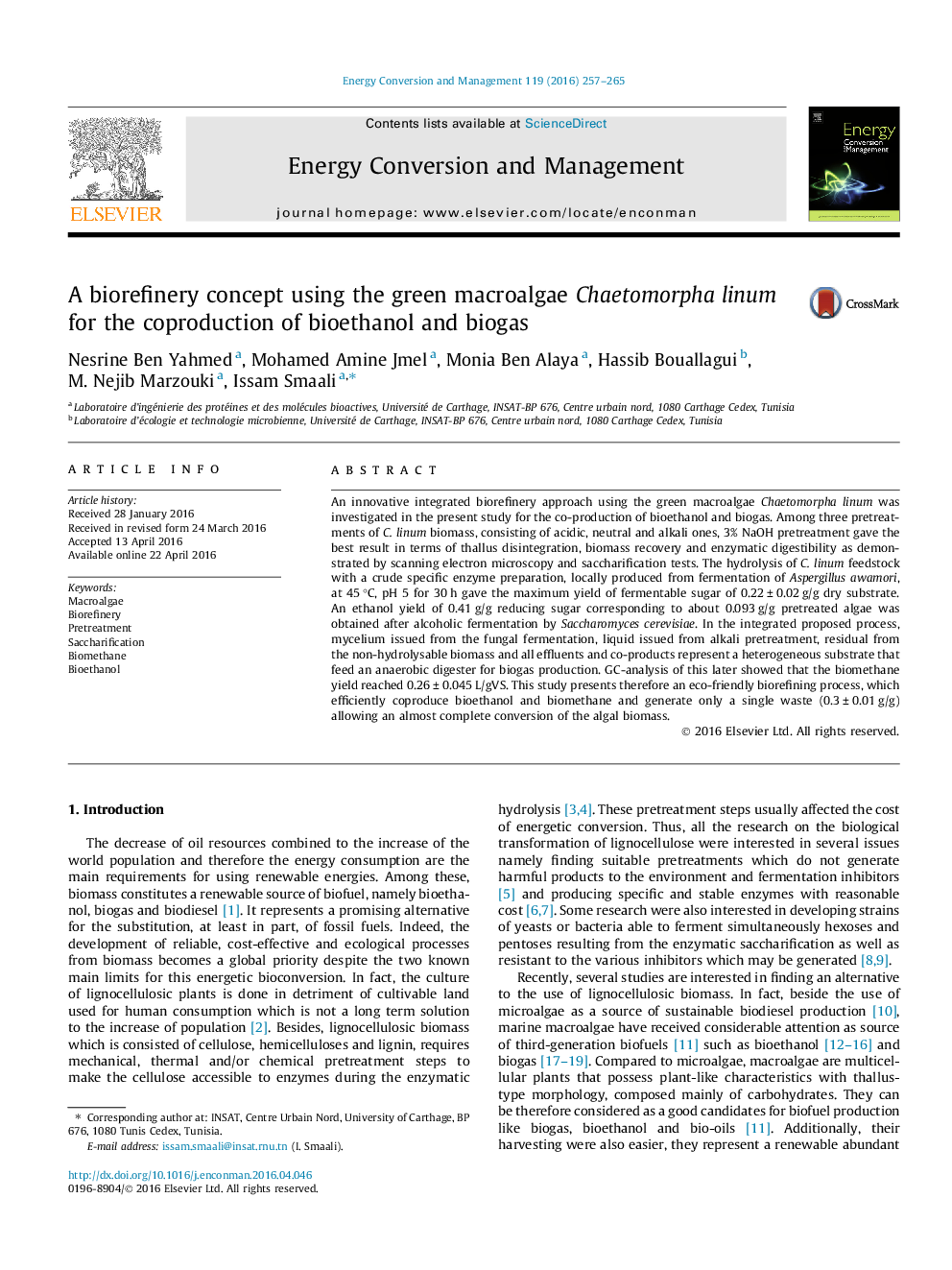| Article ID | Journal | Published Year | Pages | File Type |
|---|---|---|---|---|
| 765190 | Energy Conversion and Management | 2016 | 9 Pages |
•Chaetomorpha linum was used as sustainable feedstock for co-production of bioethanol and biomethane.•An eco-friendly process was developed, only generating 0.3 ± 0.01 g/g of waste.•Ethanol yield obtained was 0.41 g/g reducing sugar.•Methane yield obtained was 0.26 ± 0.045 L/gVS.
An innovative integrated biorefinery approach using the green macroalgae Chaetomorpha linum was investigated in the present study for the co-production of bioethanol and biogas. Among three pretreatments of C. linum biomass, consisting of acidic, neutral and alkali ones, 3% NaOH pretreatment gave the best result in terms of thallus disintegration, biomass recovery and enzymatic digestibility as demonstrated by scanning electron microscopy and saccharification tests. The hydrolysis of C. linum feedstock with a crude specific enzyme preparation, locally produced from fermentation of Aspergillus awamori, at 45 °C, pH 5 for 30 h gave the maximum yield of fermentable sugar of 0.22 ± 0.02 g/g dry substrate. An ethanol yield of 0.41 g/g reducing sugar corresponding to about 0.093 g/g pretreated algae was obtained after alcoholic fermentation by Saccharomyces cerevisiae. In the integrated proposed process, mycelium issued from the fungal fermentation, liquid issued from alkali pretreatment, residual from the non-hydrolysable biomass and all effluents and co-products represent a heterogeneous substrate that feed an anaerobic digester for biogas production. GC-analysis of this later showed that the biomethane yield reached 0.26 ± 0.045 L/gVS. This study presents therefore an eco-friendly biorefining process, which efficiently coproduce bioethanol and biomethane and generate only a single waste (0.3 ± 0.01 g/g) allowing an almost complete conversion of the algal biomass.
